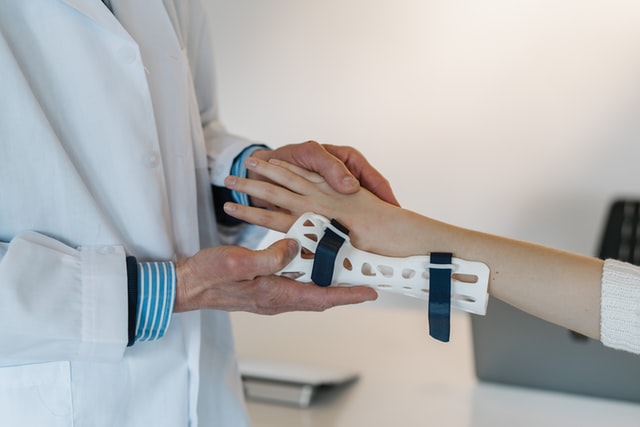How to File a Compensation Claim for Personal Injury

No one wants to witness or be involved in a workplace accident – or anywhere else, for that matter – regardless of how minor it is. When an individual starts working for a company, it might not be the first thought that comes to their mind to ask about the health and safety measures the business adheres to.
While it isn’t too common for workplace accidents to happen on a regular basis, this depends on the nature of the business the company conducts. If, for example, you are working for a construction company, you are more prone to being involved in an accident than people who work in an office. Even if you are not one of the construction workers, chances are you will be going on-site where the risk of accidents is higher. So, as an employee, no matter what type of company you work for and the job you are doing, it is of the utmost importance the employer ensures your safety while at work.
And, in case of an accident resulting in personal injury, individuals are eligible to claim compensation. The following article addresses six questions employees may have regarding filing a compensation claim.
What to do if I am injured in the workplace?
If you have been involved in an accident at the workplace that was of no fault of your own, it is of the utmost importance you report it right away. Companies should have an accident book where a record can be kept of any accidents at work. Even if a firm adheres to health and safety regulations, such an accident book is still necessary. This way, the company has on record if or when something happens and can address it immediately.
First and foremost, however, you should ensure you are not in any danger. Depending on the severity of the accident, you might not be able to move until a medical provider sees you. So, seeking medical attention is crucial to check your condition. The action needed when involved in a workplace accident is to report and record it immediately. If your state doesn’t allow you to do it yourself, a colleague could do it for you.
Am I eligible to file a compensation claim for personal injury?
As mentioned earlier, if you are not responsible for causing the accident, and so the fault is either with the institution, employer, or a colleague, you are eligible to file a compensation claim for personal injury at work. Plus, any business, no matter its size, is required to have workers’ compensation coverage, which provides medical care and other financial coverage to employees injured at work.
Therefore, if you didn’t cause the accident, but the party responsible is either of those mentioned earlier, it is within your rights to file a compensation claim. Depending on the type of the injury and how complex and serious it is, the amount of compensation will differ. Simply put, the severity of the damage directly influences the amount of money you can receive.
How can I file a compensation claim?
If you are eligible to file a compensation claim, such as when someone else has been responsible for you getting injured at work, it is crucial you know the necessary steps. After the accident, it is vital you report and record it as soon as possible. When filing a compensation claim, you will need to gather some evidence that will help your case. Such evidence can be one of the following:
- Photos of where the accident took place and whether a piece of equipment or a tool was involved;
- Statements from anyone who witnessed the accident with their contact details;
- Any medical diagnosis and courses of treatment you have so far;
- Medical bills, transportation costs, etc.
Any of the aforementioned pieces of evidence can help you build a stronger case for your compensation claim. The recommendation is to gather as much proof as possible and a combination of them. You might not be adequately prepared to do so, especially if your health condition doesn’t allow you. So, it is essential to hire a personal injury lawyer who can provide professional help and support your compensation claim.
What are the factors taken into consideration when filing a claim?
When you file a compensation claim, many factors will be taken into consideration. Apart from looking at the type of injury that resulted from the accident, such as any visible injuries or internal damage, other aspects can influence the compensation. So, depending on the type of injury and, therefore, treatment needed for it, your compensation can cover factors such as:
- Loss of earnings, if your injury forces you to take time off work;
- Medical bills, such as hospitalization, treatment, and other equipment needed during your recovery;
- Travel expenses, which include all the necessary visits to and from the hospital;
- Care expenses, in case you need any medical supervision during your recovery.
Apart from these financial expenses, compensation can also include the emotional distress that the accident has caused you. Indeed, pain and suffering cannot be quantified. However, a personal injury specialist can help with your case and factor in every aspect.
How much compensation can I get?
The amount of compensation you can get is dependent on how severe your injury is. And how big your expenses are after the accident. So, if a slip and fall due to unspecified risk areas at work result in a broken arm or leg, but the injury is relatively minor, the compensation will be accordingly. On the other hand, you will be eligible for a significantly higher amount for a neck injury that results in difficulties or inability of movement. The following examples approximately show the minimum and maximum:
- Moderate injury, such as dislocated shoulder or broken bone: £6,920
- Severe head injury resulting in brain damage: £354,260.
A noteworthy mention would be that these amounts are an estimate. More information is required for a more specific calculation, which can differ from one case to another. For this reason, it is essential you contact personal injury specialists.
What is the time limit for filing a compensation claim?
In general, the maximum limitation period for filing a compensation claim is three years. Which can be either from the moment when the accident happened or when you were diagnosed. The latter situation applies in cases when you suffer an illness or disease as a result of working in an industrial environment. However, in other cases, the maximum is three years, depending if you have enough evidence to support your claim.


